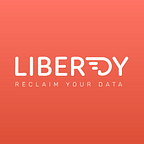#RescueOurData
5 Steps for Protection of Data Subjects
The latest chapter in the Facebook story just reinforces what we already knew. The digital monopolies that control our data have no interest in protecting our privacy if it doesn’t boost their bottom line. In the last week we’ve heard that a number of these online giants have made a concerted effort to shield themselves from regulation that is designed to safeguard data subjects’ rights.
A new EU bill, the GDPR that takes effect in May, states that the user is the rightful owner of their data and any digital company collecting its users’ personal information must make it available for free, in a portable, electronic format.
At present, the terms of service being applied to users under the jurisdiction of Facebook’s Ireland Headquarters, are also applicable to its Latin American, African, Asian and Australian users. Since Ireland is an EU jurisdiction, these 1.5 billion users should be protected under the GDPR. Yet, Facebook has recently transitioned its non-EU users from the terms of service in Ireland to those that apply in its US offices. The social networking giant is not alone. LinkedIn has also recently taken similar steps to ensure that only European users will be shielded by the GDPR and all other users will be subject to the far more lenient US legislation.
Clearly, and not for the first time, Mark Zuckerberg, Facebook’s CEO was being less that completely transparent, when in his recent appearance before the US Senate, he assured users that that “we believe that everyone around the world deserves good privacy controls…The GDPR requires us to do a few more things and we are going to extend that to the world.” The company’s efforts to transition as many users as possible outside of EU jurisdiction prior to the GDPR taking effect makes these assurance ring hollow.
If we can’t trust the custodians of our data to uphold the highest regulatory standards, for all their users, then it’s about time we had more global regulation that gives them nowhere to hide.
We need to demand a unified effort to introduce new international laws for the protection of data subjects and any such legislation must include these 5 basic rights:
Consent: Our data is ours to share or to withhold from advertisers. We need a consent-based marketplace that allows us to choose which personal information we wish to sell and to whom.
Privacy: Up to now, the digital monopolies have done what they wanted with our data including allowing 3rd parties to share our information with multiple additional entities. We need a law that ensures we can track our personal information and get a say in how it is being shared.
Security: The online companies that gather and sell our data have proven to have lax security. We are entitled to peace of mind regarding our data. Rigorous technological safeguards must be required as well as strict sharing protocols.
Transparency: It is our right to know what is happening in the background with our data, while we use online products and services. Which data is being gathered, who is gaining access to it and how is it being used?
Fairness: A fair and equal advertising economy places power back in the hands of users instead of making us subject to the control of the digital monopolies that collect our data. As the rightful owners of our own personal information we should have a voice in how it is shared and get a piece of the lucrative advertising pie, receiving payment each time data relating to us is used.
While we wait for legislation to catch up with the reality of today’s complex data ecosystem, users can take matters into their hands. The Liberdy Data Foundation is a new non- profit that enables user data to be traded while protecting user privacy and ensuring a fair, democratic advertising marketplace.
In full compliance with the GDPR, the Foundation is disrupting the entire industry with accurate, first-hand consent-based data. Having gained user consent, it then segments, encrypts and anonymizes the data so that it cannot be identified with any specific individual. The user can then choose which data they wish to sell and to whom, profiting from the purchase of their personal information. Users can also benefit from an anonymous Single Sign On for publishers’ sites, further protecting their privacy.
The Liberdy Foundation uses a blockchain based technology. The data is being stripped out of personal identifiers (anonymized), encrypted and stored in a decentralized way, making user data virtually impossible to compromise, since no single entity controls the information. The use of blockchain technology also guarantees transparency, as it provides total visibility, since every transaction is published on a public ledger, so users can follow each data transaction. By means of the Foundation app users can access all their information using smart contracts, providing and denying consent for the use of their data to chosen partners.
Whether or not the user chooses to take an active role in the management of their data, laws should be in place to protect our interests as data subjects, wherever we are in the world. We need legislation right now that enables us to rescue our personal information from the hands of digital giants like Google and Facebook, and ensure its continued safety and privacy.
The Liberdy platform is set to launch in 2018. To learn more about the company, email us at info@liberdy.io, or join our communities, so you can get the latest updates.
